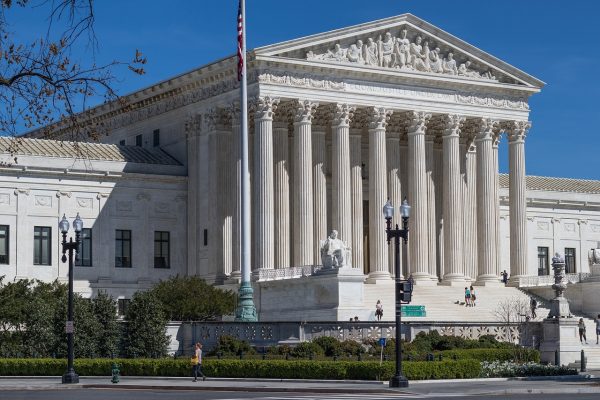In a significant victory for indigenous rights, the Supreme Court upheld the Indian Child Welfare Act (ICWA) on Thursday. The law, passed in 1978, protected tribal sovereignty by ensuring that Native American children are placed with Native American families or institutions in state child welfare and private adoption proceedings. The court’s 7-2 decision was a rebuke to challenges against the law that could have threatened the traditional values of Indian tribes and weakened their sovereign status.
Writing for the majority, Justice Amy Coney Barrett stated that: “The bottom line is that we reject all of petitioners’ challenges to the statute, some on the merits and others for lack of standing.” The decision marks an important affirmation of congressional power to set the terms for Indian adoptions, and dismisses the arguments put forward by Texans Chad and Jennifer Brackeen that prioritizing children’s placement with Native American families violated the constitutional principle of equal protection without regard to race or color.
The law was passed after Congress documented the shockingly high number of children with Native American ancestry being placed with non-Native families or institutions, a policy backed by the federal government that sought to assimilate American Indian children into the dominant culture by placing them in boarding schools and severing their tribal identities. The ICWA marked a reversal of that policy and aimed to preserve indigenous cultures by giving preference to Native American families in adoption proceedings.
During oral arguments in November, Justice Brett Kavanaugh acknowledged that the case presented a conflict between two important principles: remedying historical wrongs and treating people equally today. The government argued that the ICWA wasn’t based on racial classifications but rather on the political entity of Indian tribes, which had been recognized from the earliest days of English settlement, explicitly mentioned in the Constitution, and embodied in treaties between the U.S. and Native American tribes. Legal classifications based on political status such as tribal membership do not trigger the same constitutional concerns that racial discrimination does, the government argued.
In recent decades, the Supreme Court has tended to favor Indian rights, particularly since the appointment of Justice Neil Gorsuch in 2017. Gorsuch, a conservative from Colorado, has written impassioned opinions holding Washington accountable for mistreatment of Native Americans and disregard for treaty obligations to the tribes. The ICWA ruling further indicates the court’s tendency to support tribal sovereignty.
The law was under attack by Chad and Jennifer Brackeen, a Texas couple who had taken in two Native American children shortly after their birth with the approval of their Navajo mother. Tribal authorities later attempted to remove the children from the Brackeens and place them with a Navajo couple several hundred miles away. The Brackeens sued, arguing that decisions about adoptions should be based on the “best interest of the child,” not the interest of the tribe.
The case aroused passions on both sides, with tribal leaders arguing that the ICWA was crucial to keeping their cultures alive and protecting their sovereignty as independent nations. The law is an affirmation of the rule of law and constitutional principles surrounding relationships between Congress and tribal nations. A representative for the Brackeens said after the court’s decision was announced that the couple was “crushed” by the ruling. Jennifer Brackeen, an anesthesiologist, and her husband, a civil engineer turned stay-at-home dad, are fostering two Native American siblings — a 7-year-old boy and a 4-year-old girl — who they hope to adopt.
For Jennifer, the ICWA presented the prospect of having her son taken away from her and moved to someone he’s never met before who is not related to him. “To me, it didn’t seem like the right thing to do as his mom,” she said.
In a statement, President Biden celebrated the high court’s decision, calling it a vital protection for tribal sovereignty and Native children. The ICWA’s affirmation by the court is a significant victory for indigenous peoples and for American legal justice, which now recognizes that the preservation of tribal culture and identity is integral to the well-being of Native Americans.







